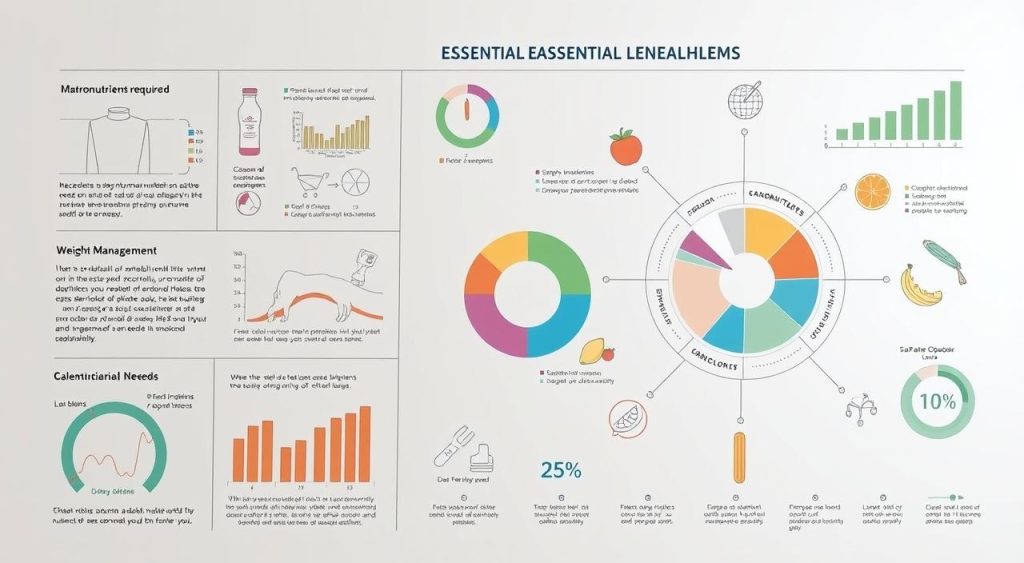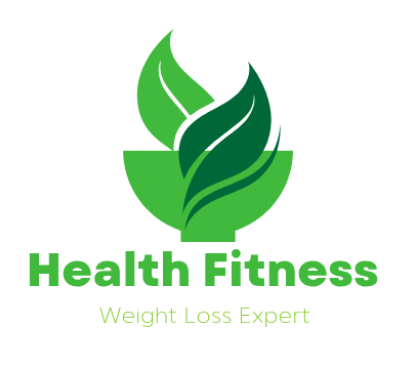
In today’s fast world, many people want to reach their fitness goals quickly. This article shares fast weight loss secrets to help you. By using scientifically proven methods, you can lose weight fast and keep it off.
Looking for quick diet changes or effective workouts? This guide has the insights and tips you need. It will help you on your path to success.
Key Takeaways
- Understand the science behind rapid weight loss for better results.
- Explore effective weight loss strategies tailored to your lifestyle.
- Implement dietary changes that promote quick results.
- Discover workout routines that enhance fat loss.
- Learn how to maintain motivation throughout your journey.
Understanding Rapid Weight Loss
Rapid weight loss often grabs the attention of those wanting to lose weight fast. It’s key to understand weight loss to make smart health choices. Losing more than two pounds a week is usually considered rapid.
The body reacts differently to quick weight loss. At first, you might lose water weight, which feels good. But, losing water doesn’t mean you’re losing fat. Health experts say slow, steady weight loss is better and lasts longer.
Fast weight loss plans can be risky. You might lose muscle, which is bad for your health. You could also miss out on important nutrients from eating too little. Losing a lot of weight can slow down your metabolism, making it harder to lose more weight later.
Given these risks, it’s important to focus on health over speed when losing weight fast. Taking a balanced approach to weight loss is key. This way, you follow the basic principles of understanding weight loss.
How to Lose Weight Fast: The Science Behind It
Understanding weight loss is key for quick weight loss. It involves complex biological processes. The metabolic rate is at the heart of it all. We’ll look at how metabolism affects energy use and why a caloric deficit is vital for weight control.
The Role of Metabolism in Weight Loss
Metabolism is the body’s chemical processes that keep us alive. It turns food into energy. People’s metabolic rates vary due to age, gender, muscle mass, and activity level. A faster metabolic rate means burning more calories at rest, leading to quicker weight loss.
Caloric Deficit Explained
To lose weight, you need to eat fewer calories than you burn. This forces your body to use fat for energy, helping you lose weight. Keeping track of calories you eat and burn is key to reaching your weight loss goals.
| Factor | Effect on Metabolism |
|---|---|
| Age | Metabolic rate generally decreases with age. |
| Gender | Men typically have a higher metabolic rate than women due to more muscle mass. |
| Muscle Mass | Increased muscle mass leads to a higher metabolic rate. |
| Activity Level | Regular physical activity boosts the metabolic rate. |

Top Strategies for Quick Weight Loss
For quick weight loss, you need a mix of diet and exercise. This combo speeds up results and boosts health. Here are two key areas to focus on for the best results.
Dietary Changes for Rapid Results
Changing your diet can lead to quick weight loss. Low-carb diets, like the ketogenic diet, are great for losing fat fast. They cut down carbs and up healthy fats, making your body burn fat for energy.
Eat lean proteins, lots of veggies, and healthy fats. Add foods like avocados, nuts, and fatty fish to your meals. Keeping a food diary helps you stay on track.
Exercise Routines to Boost Fat Loss
Adding the right exercise boosts your weight loss journey. High-intensity interval training (HIIT) is known for burning calories and fat quickly. Strength training builds muscle, which raises your resting metabolism.
A good routine mixes cardio and strength exercises. This keeps your body burning fat even after you stop working out. Regular exercise not only speeds up results but also keeps you motivated.
How Many Calories Should I Eat to Lose Weight?
Finding the right number of calories is key to losing weight. Your daily calorie needs depend on your age, sex, weight, height, and how active you are. Knowing how to figure out these needs helps you make a plan that works for you. It’s important to focus on both the number of calories and their quality.
Calculating Your Daily Caloric Needs
To lose weight, start by figuring out how many calories you need each day. Here’s how:
- First, find your Basal Metabolic Rate (BMR), which shows how many calories you burn when you’re not moving.
- Then, adjust for how active you are using an activity multiplier (sedentary, moderately active, or very active).
- Next, cut down on your daily calories by 500 to 1000 to lose 1 to 2 pounds a week safely.
Online calculators can help estimate your daily calorie needs. Remember, everyone is different, so you might need to make changes as you go.
Understanding Caloric Quality versus Quantity
Not all calories are the same. While counting calories is important for losing weight, it’s also vital to think about the quality of those calories. Foods like fruits, vegetables, lean proteins, and whole grains are better for you. They offer:
- More energy.
- Less hunger and more feeling full.
- Important vitamins and minerals for your body.
By balancing calorie intake and quality, you can lose weight more effectively. Plus, you’ll make sure your body gets the nutrients it needs.

| Caloric Quality | Caloric Quantity |
|---|---|
| High in nutrients (fruits, vegetables, lean proteins) | Overall daily calorie count to create a deficit |
| Supports long-term health and satiety | Focus on reducing weight gradually |
| Enhances energy and recovery | Calculating needs based on body metrics |
Fastest Way to Lose Weight: What Works?
Many methods are popular for losing weight quickly. Intermittent fasting and low-carb diets are among the most effective. Each has its own benefits and scientific support. Knowing how they work can help you choose the best for your goals.
Intermittent Fasting Explained
Intermittent fasting alternates between eating and fasting. It helps the body use stored energy better, speeding up fat loss. When fasting, insulin levels go down, making the body burn fat. Studies show it can lead to quick weight loss, making it a good option for fast results.
Low-Carb Diets and Their Effectiveness
Low-carb diets, like the ketogenic diet, limit carbs and increase fats and proteins. This leads to ketosis, where the body burns fat for energy. These diets have been shown to cause fast weight loss and improve health. They are a strong choice for losing weight quickly and effectively.

Best Way to Lose Weight: Expert Opinions
Getting advice from nutritionists and dieticians is very helpful. They say it’s better to focus on lasting changes, not quick fixes. Many diets are popular, each with its own good and bad points.
Insights from Nutritionists and Dieticians
Nutritionists suggest eating whole foods and avoiding processed ones. They say a good diet has lean proteins, healthy fats, and lots of veggies. They also talk about controlling portions and being mindful while eating.
They believe knowing what your body needs is key. This can really help with weight loss.
Comparative Analysis of Popular Diet Plans
The Mediterranean diet is known for being good for your heart. It focuses on fruits, veggies, fish, and olive oil. Experts say it’s a good choice because it includes many food groups.
The Paleo diet, on the other hand, is based on foods from the Paleolithic era. It includes meats, nuts, and seeds. While some people do well on it, it might not have all the nutrients you need.
| Diet Plan | Benefits | Drawbacks |
|---|---|---|
| Mediterranean Diet | Heart-healthy, high in nutrients, sustainable | Could be higher in calories if portions are not controlled |
| Paleo Diet | Encourages whole foods, may lead to weight loss | Restrictive, may lack important food groups like dairy and grains |
Choosing a diet plan is a big decision. You should think about your health goals, what you like to eat, and your lifestyle. Talking to experts can help you find the best way to lose weight.

How Did Kelly Clarkson Lose Weight? A Case Study
Kelly Clarkson’s weight loss journey is a big inspiration for many. Her story shows how to reach health goals. She changed her diet and exercise to lose weight, showing it’s possible with the right plan.
Her Unique Approach to Diet and Exercise
Clarkson took a balanced diet approach, avoiding strict eating. She tried different diets but found success with whole foods, veggies, and lean proteins. This way, she could enjoy many foods while losing weight.
She also made exercise fun by dancing and weight training. This made her stay motivated and consistent. It shows that fitness should be fun and part of daily life.
Lessons Learned from Celebrity Weight Loss Journeys
Kelly Clarkson’s story teaches us a few important lessons. First, finding a diet that fits you is key. Generic diets don’t work for everyone. Second, making lasting lifestyle changes is more important than quick fixes.
Clarkson’s journey is not just inspiring but also full of practical tips. Her story shows how a personalized approach and balanced lifestyle can lead to success.

Mindset Shifts for Successful Weight Loss
Reaching weight loss goals often depends on one’s weight loss mindset. A positive outlook can greatly affect diet and exercise choices. It helps build resilience, making it easier to face challenges without getting discouraged.
Using psychological strategies for weight loss helps stay on track. Techniques like visualization keep goals in sight. Imagine the joy of reaching your target weight to stay motivated.
Setting realistic goals boosts confidence. Break big goals into smaller steps for lasting motivation. Keeping a journal tracks progress and shows areas for growth.
| Mindset Shift | Description |
|---|---|
| Positive Affirmations | Using encouraging phrases to reinforce commitment and resilience. |
| Visualization Techniques | Imagining successful outcomes to enhance motivation and focus. |
| SMART Goals | Creating Specific, Measurable, Achievable, Relevant, and Time-bound goals. |
| Self-Reflection | Regularly assessing progress and mindset to identify barriers and successes. |
Building a strong weight loss mindset comes from regular practice. Being part of a supportive community boosts motivation. Friends or online groups offer encouragement, making the journey more fun.
Incorporating Supplements for Optimal Weight Loss
Many people look for ways to improve their weight loss journey. Using specific dietary supplements can be a good strategy. These supplements meet different needs and goals, helping people boost their weight loss efforts.
Common Supplements for Weight Loss
Several supplements are known for their weight loss benefits. Knowing about these can help you choose the right one for your goals. Here are some well-known options:
| Supplement | Active Ingredient | Potential Benefits | Scientific Evidence |
|---|---|---|---|
| Green Tea Extract | Epigallocatechin Gallate (EGCG) | Boosts metabolism; enhances fat oxidation | Research supports its role in increasing calorie expenditure. |
| Garcinia Cambogia | Hydroxycitric Acid (HCA) | May suppress appetite and prevent fat storage | Studies yield mixed results, requiring further examination. |
| Protein Powders | Whey or Plant-Based Proteins | Supports muscle maintenance; promotes satiety | Evidence suggests protein aids in weight reduction when combined with exercise. |
Choosing the right supplement can greatly help a balanced diet and exercise plan. It’s key to think about your health goals and any health conditions. Always talk to a healthcare professional before starting any supplement. This ensures a safe and effective way to lose weight.
Tracking Progress: Tools and Techniques
Keeping track of progress is key to a successful weight loss journey. Good weight loss tracking tools help you stay on track and offer insights. They can boost your motivation and help you stick to healthy habits. Using the best weight loss apps is a popular way to track your progress.
Apps That Help You Monitor Weight Loss
Many apps are out there, each with its own features. Here are some top tools:
- MyFitnessPal: It has a huge database of foods for logging calories and nutrients.
- Noom: It focuses on changing your lifestyle with personalized coaching and tracking.
- Lose It!: Its easy-to-use interface helps you log food and exercise, showing your progress.
- FatSecret: It combines food and exercise tracking with community support and challenges.
These tools fit easily into your daily life. Logging meals and workouts helps you make better choices. Features like body measurement tracking and progress graphs make your journey more rewarding. Many apps also send reminders and help you set goals, keeping you motivated.
The Importance of Staying Hydrated
Hydration is key for effective weight loss. It helps you understand how staying hydrated aids in dieting and fitness. Drinking water benefits your body in many ways, helping with weight management.
Drinking water can also help control hunger. When you’re well-hydrated, you feel less hungry. This means you eat fewer calories and stick to a healthier diet.
Staying hydrated also boosts your metabolism. Even a little dehydration can slow down your metabolism, making it harder to lose weight. Drinking enough water helps your digestion and keeps you energetic, helping you stay active.
Proper hydration prevents fatigue too. When you’re well-nourished, you have more energy and motivation. This makes it easier to keep up with workouts. Taking regular hydration breaks can greatly improve your daily productivity and exercise performance.
In summary, staying hydrated is vital for anyone trying to lose weight. It helps control hunger, boosts metabolism, and keeps you full of energy. These benefits make hydration a must-have for a successful weight loss plan.
Common Mistakes to Avoid When Losing Weight Fast
Many people trying to lose weight quickly make common mistakes. These mistakes can hurt their success. It’s important to know these pitfalls to avoid health and motivation problems.
Pitfalls of Crash Dieting
Crash dieting is a big mistake. It can cause weight loss mistakes like not getting enough nutrients. Crash dieting risks include losing muscle and slowing down your metabolism. This makes it hard to keep weight off in the long run.
A better way to eat is to find a balance. This leads to healthier and more lasting weight loss.
Overtraining: Finding the Right Balance
Overtraining is another big problem. It can make you tired, irritable, and less motivated. It also increases the chance of getting hurt and not doing well in workouts.
Knowing the overtraining effects is key. If you don’t take rest days, you might feel tired all the time. It’s important to find the right balance between working out and resting.
Maintaining Weight Loss After Reaching Your Goals
Reaching your weight loss goals is a big win. But, the real battle is keeping the weight off. It’s key to have good habits for long-term health. Adding healthy habits to your daily life helps prevent weight gain.
Regular exercise is a smart move. Mix cardio, strength training, and flexibility exercises. This boosts your health and keeps your weight stable. Plus, doing fun activities makes sticking to it easier.
Mindful eating is also important. Paying attention to portion sizes and food choices is vital. Eat whole foods like fruits, veggies, lean proteins, and grains. They help you feel full without too many calories.
Having a support system is also key. Being around friends, family, or a fitness group keeps you accountable. Sharing your journey and challenges gets you motivated and supported.
The table below outlines effective weight maintenance strategies:
| Strategy | Description | Benefits |
|---|---|---|
| Regular Exercise | Engaging in physical activity several times a week | Boosts metabolism, helps manage weight |
| Mindful Eating | Focusing on eating habits and portion sizes | Promotes healthier food choices, increases satisfaction |
| Tracking Progress | Monitoring weight and food intake regularly | Helps identify patterns and areas for improvement |
| Support Systems | Building a network for encouragement and motivation | Increases accountability, shares knowledge and resources |
Using these strategies can help keep weight loss going. Everyone is different, so try different things to find what works best for you.
Frequently Overlooked Tips for Fast Weight Loss
Fast weight loss isn’t just about diets or workouts. There are many tips that can help you lose weight quickly. One key tip is mindful eating. This means eating without distractions to better understand hunger and portion sizes.
Cooking at home is another great way to manage weight. You get to choose what goes into your meals, making it easier to eat healthy. This helps you avoid extra calories found in restaurant food.
Don’t underestimate the power of sleep in weight management. Not getting enough sleep can mess with your hunger hormones, making it harder to lose weight. Try to get 7-9 hours of sleep each night to aid your weight loss.
Small changes, like drinking more water, can also make a big difference. Staying hydrated helps your health and can curb hunger. Trying these tips can really boost your weight loss efforts.
Conclusion
Fast weight loss combines science and lifestyle changes. It’s key to know about metabolism, calories, and exercise. Everyone is different, so finding what works for you is important.
Keeping a calorie deficit and eating well are vital. Try intermittent fasting or low-carb diets for better results. Also, stay positive and drink plenty of water to help your weight loss journey.
Stick to it and keep things balanced. A well-rounded approach leads to quick weight loss and long-term health. These tips can help you build a healthy lifestyle that boosts your confidence.
